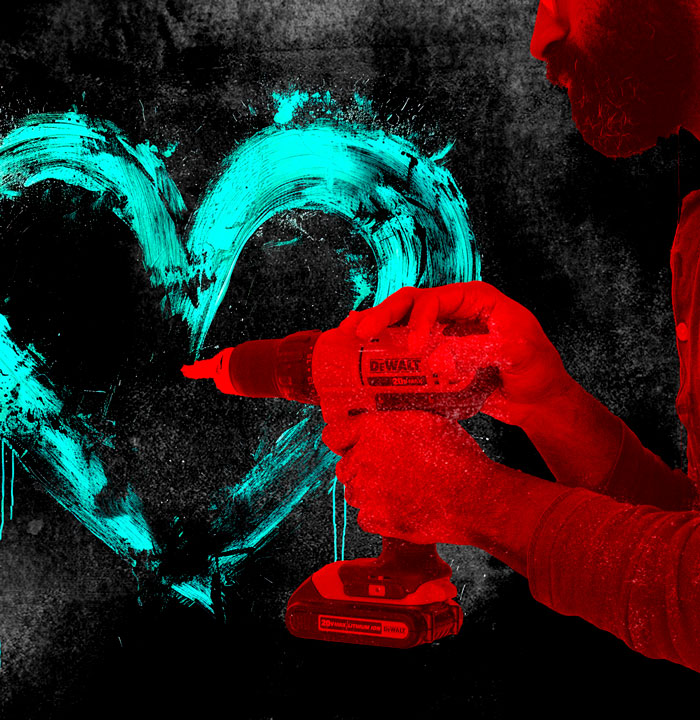[ad_1]
Make sure your good intentions don’t get lost in translation.
“Nakupenda!”
You have no clue what I just said, right?
It means “I love you” in Swahili, a language spoken in eastern Africa.
That’s the problem with languages. We can say a lot of things, but if the other doesn’t understand, you lose information in translation. The words fall on deaf ears.
And it’s not just words.
My mum often gives me small gifts as a sign of her love, but while I appreciate the gesture and know where it’s coming from, it doesn’t make me feel as loved as some of the other ways she expresses it.
We speak different love languages.
It’s a term coined by marriage counselor, speaker, and author Dr. Gary Chapman, author of “The 5 Love Languages.”
If you don’t speak the same language, you can do naked triple backflips to show your partner you love them – they still won’t feel it.
But if you do, it will help you connect with your partner, make them feel the love you give, create more intimacy in the long run, and can help avoid conflict and resentment.
Here’s your crash course to the 5 love languages:
Seduce Their Ears With Words of Affirmation
Science says humans developed spoken language between 150,000 and 200,000 years ago.
It’s our most-used way of communication, so it’s no surprise that words are a love language.
My grandma was huge on this, telling me over and over how much I meant to her. But it’s not just about saying, “I love you.”
People who speak this love language respond well to any sort of verbal appreciation. They thrive on kind, encouraging, and vulnerable words.
- Give genuine compliments
- Write them a heartfelt note
- Express gratitude and appreciation for things big and little
- Tell them how much they mean to you and why
Whatever you do, be sincere – empty or generically broad words will hurt them just as much as genuine ones make them feel loved.


Make Them Feel Your Love With Acts of Service
For some people, actions speak louder than words.
You can tell them about your love countless times, but do something for them and it hits harder than a million sentences combined. I once had an ex-girlfriend who melted like butter in a pan every time I made her food. Good thing I like to cook.
People who speak this language feel loved when you put in effort.
- Help with chores
- Make them breakfast
- Take something off their plate they don’t enjoy doing
But again, it needs to be genuine – if they sense you only do it because you think you have to, or because they should appreciate it, it will backfire like a broken bazooka.


Spend Your Most Precious Resource With Them – Quality Time
Time is our most precious resource – once it’s gone, it’s gone forever.
That’s why I like to spend my free hours with the people I love. For me, it’s a sign of appreciation and deep connection. When someone understands, appreciates, and returns it, I feel loved.
But it’s not just any time – it’s quality time.
This means talking, connecting, and being present instead of constant distraction from TVs, phone screens, or to-do lists.
When you know what it’s about, it’s easy to create:
- Plan dates and make time to be with the other person
- Be fully present and make an effort to get distractions out of the way
- Listen actively and make the person feel like they’re the only thing in the world that matters right now
The biggest sin when it comes to this love language is not being present – it makes me feel like I don’t matter. I’d rather have an hour of someone’s full presence than three hours of them being all over the place.
Mesmerize Their Body With Physical Touch
The right person touching you the right way can feel magic – not just sexually.
I once had a girlfriend who didn’t care about cuddling. When she told me she never had been into it, it took me a few seconds to pick my jaw off the floor again. I’m a sucker for physical touch so needless to say, the relationship didn’t last long.
The things that make me and other people who speak this language feel loved are simple:
- Holding hands
- Sitting so close our legs touch
- A quick squeeze when cuddling
It’s not about physical attraction or sexual intimacy. It’s about making the body feel what the mind already knows.


Say It With A Gift
Ever wondered why some people obsess over deeply personal birthday gifts while others couldn’t care less?
One day while I was traveling in Australia, I was walking down the street singing doo wadeedee deedeedum deedeedoo, when a girl from our hostel walked towards me. We were barely in shouting distance when she blurted out “Hey Moreno, it’s my birthday!”
I thought it weird, but later realized she was an absolute sucker for birthday presents since they made her feel loved, appreciated, and seen – this was the day when she could feel showered in love. I can’t blame her for that.
Like other people who speak this love language, she thrived on small gifts.
- A flower
- A box of their favorite cookies
- A little gadget that’s the perfect addition to their kitchen tools
It doesn’t have to be something big – it’s the thought and attention that matters. Missing an occasion like a birthday gift can deeply hurt someone who speaks this language, even if it seems like no big deal to others.
Alternatively, some feel very loved by small random gifts; things like surprising them with their favorite takeout so they don’t have to think about dinner, or a t-shirt with a shared interest or inside joke you found unexpectedly.
How To Connect When You Speak Different Love Languages
Now you understand the “Nakupenda!” problem a lot better.
So what can you do when you speak different love languages?
How do you make sure your partner receives your expressions of love and you get your needs met, as well?
In a nutshell, you’ll both have to learn the other’s language – here’s how:
- Assess yourself with a love language quiz or reflect on what makes you feel loved. The better you understand yourself, the more you can help your partner speak your language.
- Develop empathy and understanding. Appreciate your partner’s efforts even if they’re in the “wrong” language – they still love you, it’s just a little lost in translation.
- Have regular check-ins and communicate openly. Ask “How full is your love tank?” or reflect in a relationship journal. Educate and help each other grow.
- Make an active effort to learn your partner’s language. It might feel unnatural at first, but once you see how positively they react to it, you’ll understand why it’s so important.
- Celebrate your differences. What seems like an obstacle in the beginning can help you connect if you learn to appreciate each others’ uniqueness.
If both of you put in the work, you’ll thrive together – no matter what language you speak.
This Is What True Love Means
They say love knows no boundaries.
That might be true, but it certainly knows languages.
And if you don’t speak the same, your love is going to dry out like a puddle of water in the Sahara midday sun.
But if you both make an effort, you’ll connect – whether it’s through words, acts, gifts, time, or touch.
That’s what true love means – meet the other halfway, no matter what language you speak.
Nakupenda.
[ad_2]
Source link
Jarastyle Teen’s – #Partner #Feel #Loved #Understanding #Love #Language
Courtesy : https://www.primermagazine.com/2024/love/understanding-love-languages

